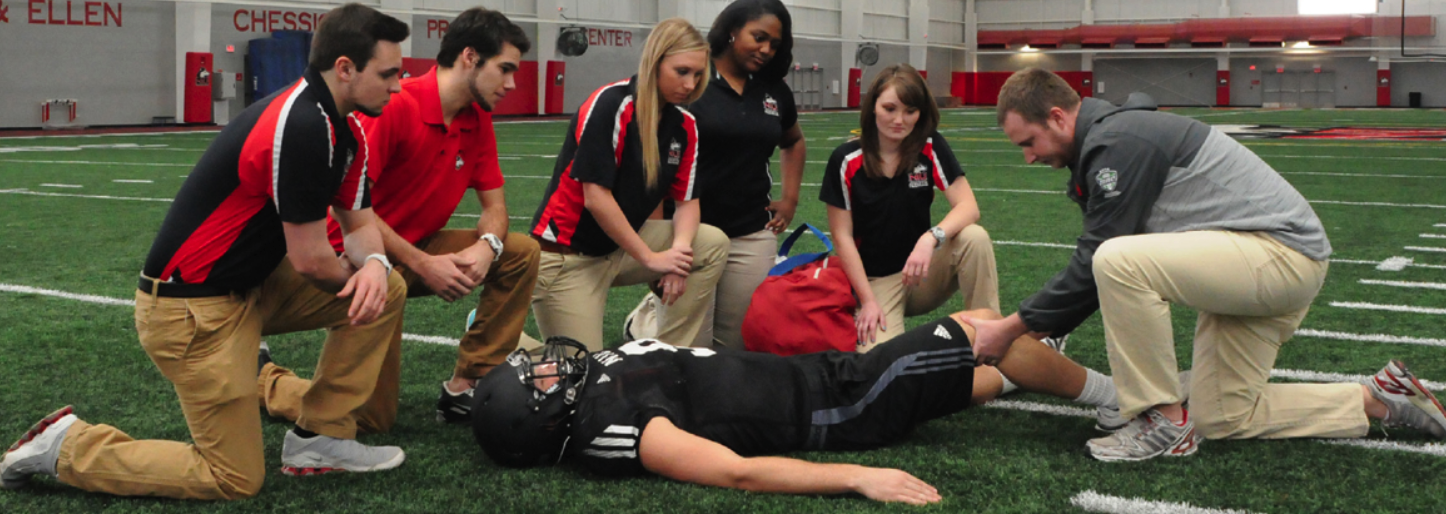Internships are the norm in our world. Whether it be in the private sector or in schools, it's a great way for young coaches to dip their toes in the water of real world strength and conditioning.
In my article A Case For Education Reform I talk about the importance of shifting our educational emphasis to experiential training prior to pursuing full-time opportunities and one sector of our industry that does an amazing job at this is the S&C world.
Internships are an integral part in the strength and conditioning realm and more and more young coaches have to seek out internships to gain experience (and a job offer).
As important as it is for young coaches to intern, it's important that the school or facility provide an effective internship program that actually offers value to the intern.
When done poorly, an internship program can spread a program thin and really decrease productivity and morale of the staff, and the interns. When done well, internship programs can really bring fresh ideas to your program, but also add great value to the coaches coming through.
What's great is if you run a successful program, it presents an excellent pool of properly trained candidates to come on board as full time coaches if they are a good fit. Whether you have the funds to bring them on right away, or have to wait, you still have a group of individuals that you know have been properly trained and are ready when called upon.
The issue becomes when interns aren't given the responsibilities that correlate to real world experience. Instead of getting the most out of the internship and giving you the help you need, they're focused on checking a box for a year, adding it to their resume and hoping they get the call from the real job they want.
The goal is to build a premier internship program people are dying to be a part of and get the most out of. If you follow the following 3 steps you will be well on your way.
1. Onboard an intern as if they are a new full-time employee
One of the coolest aspects of my first internship while I was a sophomore in college was the fact that we were treated like full time employees. We went through the entire onboarding process that a new coach would. This was so powerful because I knew the ins and outs of that program. If someone was down, we could step in and do the job. It was the next man up philosophy. During my semester, one of the full time interns got hired because a full time guy left. There was literally zero lag time, why? Because this individual had the knowledge to be effective and already felt like they were full time so it was an easy transition. Too often I see interns cleaning or racking weights, going and setting up the field or just doing the busy work that coaches don't want to do. While I understand this philosophy, it doesn't teach the young coach anything except how to be proficient in the busy work. Onboarding your interns, and treating them like full time coaches is an amazing way to get buy in, have a true set of extra hands, and create yourself a great pipeline of actual qualified coaches should you hire them on.
2. Look to the future: consider hiring full-time if they are a fit
One of the best things I heard from an internship coordinator was from a coach at a private facility in Sarasota, FL. On day one he said, "We chose you for a reason, I wouldn't invest my time, our energy or our resources into you if we didn't think you could work for us. Consider this a 90 day job interview." Here's the thing, whether that was all smoke to get us to work hard or not (I don't know anyone that got hired), it worked. We were treated like a coach, expected to act like a coach and because of this we gained real, hands on experience that could have easily transferred into that position if the position opened. Understand this, most interns are looking to impress you and actually make an impact in your facility or program. Don't treat an intern like a paper pusher, or a janitor, that wastes everyone's time who is involved.
3. Give them ownership and responsibilities early
Ideally, an intern will have some ownership of a certain aspect of your program or facility right from the start, or at the very least a responsibility or two. With a supervisor able to watch over them, and make sure all standards are met, this becomes a low risk - high reward initiative. It's as simple as delegating one of your weekly recurring tasks, or allowing them to run a session per day. It's important that they feel like they are trusted with something and not just doing busy work. When done right, interns can add tremendous value to your facility or program that creates a useful pipeline to develop the future leaders in our industry.
What are some strategies you've used to get the most out of your interns?




.png?width=110&name=Listing%20Image-basketball%20ladder%20drill%20%20(350%20x%20350%20px).png)













